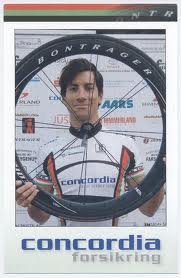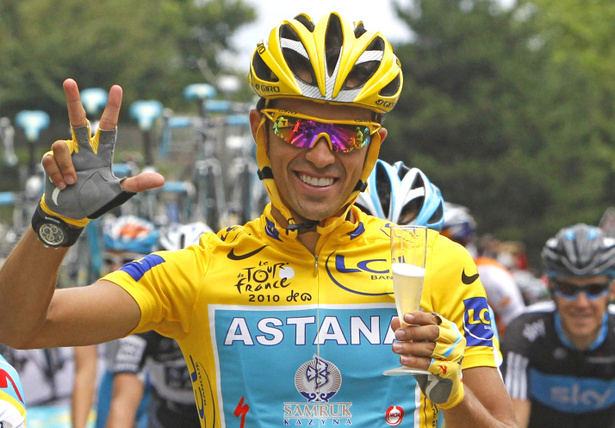
Perpetually smirking Alberto Contador has been stripped of his 2010 Tour de France victory and banned from cycling for two years after the sport’s highest court found the Spanish cyclist guilty of doping.
The Court of Arbitration for Sport suspended the three-time Tour champion after rejecting his claim that his positive test for clenbuterol was caused by eating contaminated meat.
CAS backdated Contador’s ban and he is eligible to return to competition on Aug. 6.
Contador blamed steak bought from a Basque producer for his high reading of clenbuterol, which (2).jpg) is sometimes used by farmers to fatten up their livestock.
is sometimes used by farmers to fatten up their livestock.
CAS said both the meat contamination theory and a blood transfusion scenario for the positive test were “possible” but “equally unlikely.”
“The Panel found that there were no established facts that would elevate the possibility of meat contamination to an event that could have occurred on a balance of probabilities,” CAS said. “Unlike certain other countries, notably outside Europe, Spain is not known to have a contamination problem with clenbuterol in meat. Furthermore, no other cases of athletes having tested positive to clenbuterol allegedly in connection with the consumption of Spanish meat are known.”
Andy Schleck of Luxembourg, who finished second at the 2010 Tour, stands to be elevated to victory.

.jpg) caused his positive test for clenbuterol, a banned anabolic agent.
caused his positive test for clenbuterol, a banned anabolic agent. had kissed a girl in a disco in Miami. Both the French Tennis Federation and WADA considered that even though this was an unlikely cause for a positive, it was the most probable reason.
had kissed a girl in a disco in Miami. Both the French Tennis Federation and WADA considered that even though this was an unlikely cause for a positive, it was the most probable reason..jpeg) Cycling is a mess.
Cycling is a mess. continental Concordia team, tested positive for clenbuterol during the 2010 Vuelta a Mexico.
continental Concordia team, tested positive for clenbuterol during the 2010 Vuelta a Mexico.(1).jpg)
.jpg) contaminated meat.
contaminated meat.
 fantasies of regularly cycling again (the bike trailer with the kid is helping).
fantasies of regularly cycling again (the bike trailer with the kid is helping).